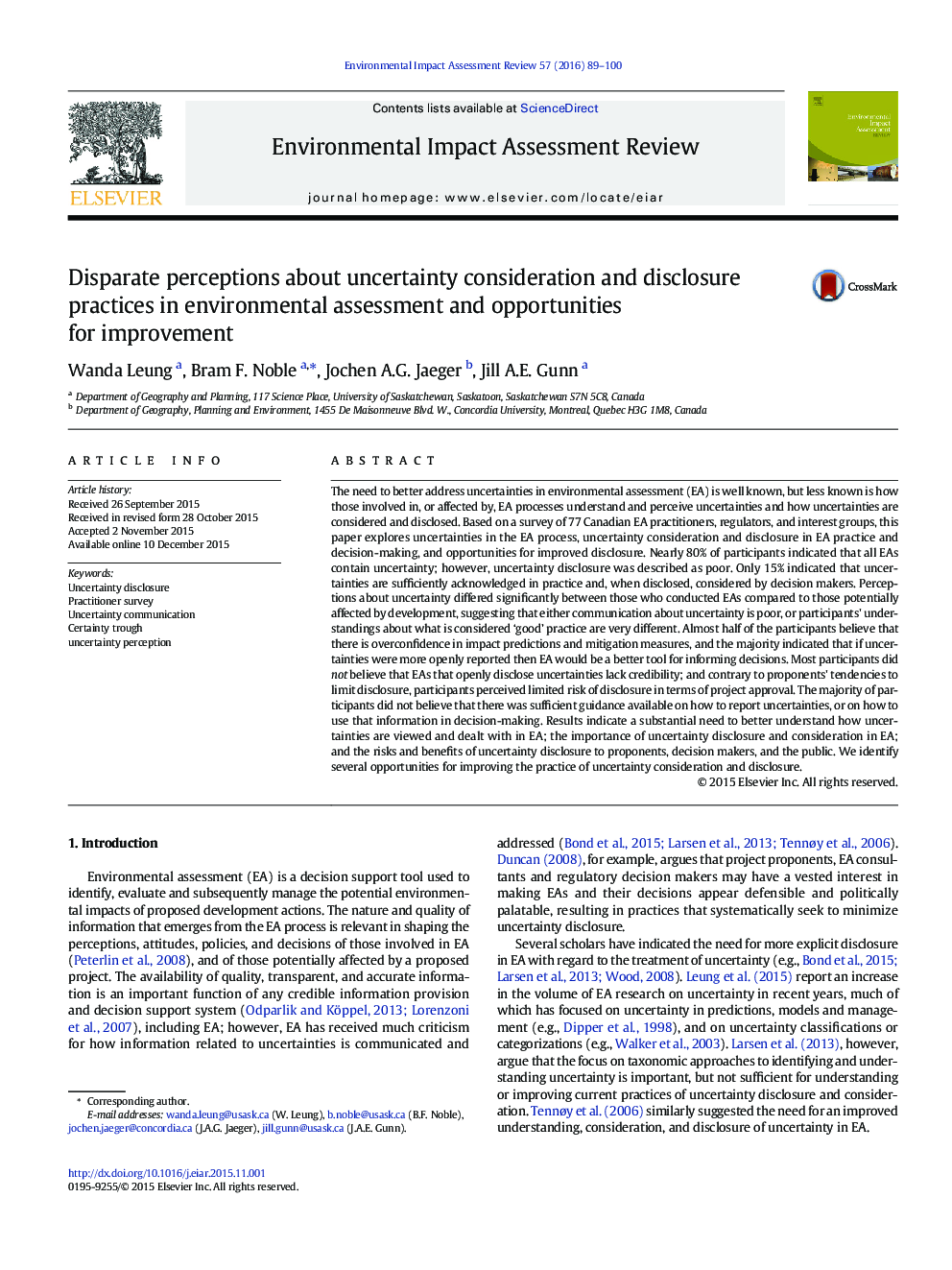| Article ID | Journal | Published Year | Pages | File Type |
|---|---|---|---|---|
| 7465155 | Environmental Impact Assessment Review | 2016 | 12 Pages |
Abstract
The need to better address uncertainties in environmental assessment (EA) is well known, but less known is how those involved in, or affected by, EA processes understand and perceive uncertainties and how uncertainties are considered and disclosed. Based on a survey of 77 Canadian EA practitioners, regulators, and interest groups, this paper explores uncertainties in the EA process, uncertainty consideration and disclosure in EA practice and decision-making, and opportunities for improved disclosure. Nearly 80% of participants indicated that all EAs contain uncertainty; however, uncertainty disclosure was described as poor. Only 15% indicated that uncertainties are sufficiently acknowledged in practice and, when disclosed, considered by decision makers. Perceptions about uncertainty differed significantly between those who conducted EAs compared to those potentially affected by development, suggesting that either communication about uncertainty is poor, or participants' understandings about what is considered 'good' practice are very different. Almost half of the participants believe that there is overconfidence in impact predictions and mitigation measures, and the majority indicated that if uncertainties were more openly reported then EA would be a better tool for informing decisions. Most participants did not believe that EAs that openly disclose uncertainties lack credibility; and contrary to proponents' tendencies to limit disclosure, participants perceived limited risk of disclosure in terms of project approval. The majority of participants did not believe that there was sufficient guidance available on how to report uncertainties, or on how to use that information in decision-making. Results indicate a substantial need to better understand how uncertainties are viewed and dealt with in EA; the importance of uncertainty disclosure and consideration in EA; and the risks and benefits of uncertainty disclosure to proponents, decision makers, and the public. We identify several opportunities for improving the practice of uncertainty consideration and disclosure.
Related Topics
Physical Sciences and Engineering
Energy
Renewable Energy, Sustainability and the Environment
Authors
Wanda Leung, Bram F. Noble, Jochen A.G. Jaeger, Jill A.E. Gunn,
